Recent Posts

18 English Collocations with the Word ‘Idea’
Learn 18 useful English collocations with the word "idea" to improve your fluency and sound more natural in conversation. This vocabulary guide includes clear definitions, real-life examples, and tips on when to use each expression. Ideal for intermediate to advanced English learners who want to build confidence and speak like a native.

Mastering English Collocations with the Word 'Question'
If you’ve ever wondered how to sound more natural in English, one of the best things you can do is learn collocations—words that naturally go together. Today, let’s talk about collocations with the word question. Pressing questions, rhetorical questions, dodging questions and more1 These phrases will help you express yourself more fluently and confidently in both speaking and writing.

Learn 20 English Collocations with ‘Family’
Many of us, all over the world gather with family during December and January. Perhaps you’ve just celebrated a family Christmas or a New Year’s Dinner with your loved ones, or maybe you’re preparing for Lunar New Year and a chance to catch up with more distant relatives. Today I’ve got a useful list of English collocations with the word family, along with their meanings and example sentences.

Learn 20 English Collocations With The Noun ‘Lie’
This week here on the blog, we’ve been looking at English language for talking about deceit, dishonesty and lies.
Enhancing your English fluency involves more than just vocabulary and grammar; it includes understanding how words naturally combine, known as collocations.
Today we’re going to explore 20 common collocations with the noun ‘lie'‘ and how to use them in everyday English.
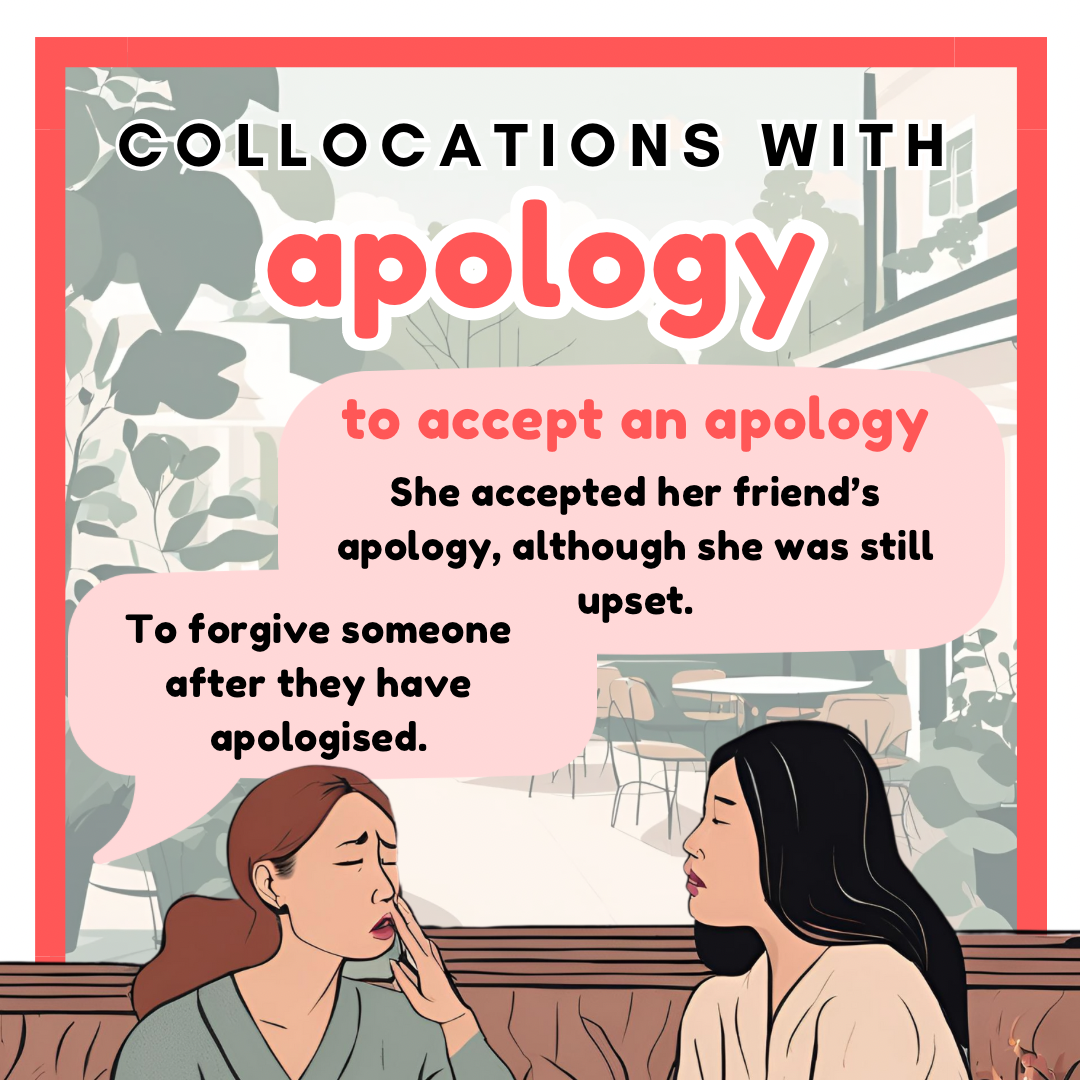
Mastering the Art of the Apology in English: 13 Collocations You Need to Know
In English, apologies come in all shapes and sizes—there’s no one-size-fits-all way to say ‘sorry.’ Whether you’ve made a mistake, someone expects an apology from you, or you’re navigating a public mishap, knowing the right language for each situation makes all the difference.
Let’s look at some key collocations with ‘apology’ to help you communicate more confidently and naturally in English.

Mastering English Collocations: Talking About Boundaries
Boundaries are essential in life and relationships. They define limits, ensure mutual respect, and help us communicate clearly. Whether you're navigating personal relationships or discussing professional limits, knowing how to talk about boundaries in English is a valuable skill. In this post, we’ll explore some common collocations with the word “boundary” to help you express yourself more naturally and confidently.

Common English collocations with ‘take.’
In today’s English lesson we’re looking at common collocations with the verb ‘take’; from taking a break to taking part in something. Scroll down to the bottom of the page for a quick quiz to test your knowledge of these collocations with take.

20 essential English collocations with ‘give’
Today we’re going to look at 20 English collocations with the word ‘give’ From giving someone a hand to giving evidence, learning these common collocations will help you to communicate clearly and confidently in English.

Learn English collocations with keep.
Today we’re going to try out some essential English collocations with the word ‘keep,’ exploring their definitions and looking at example sentences. Think about how you could use these collocations in your own life.
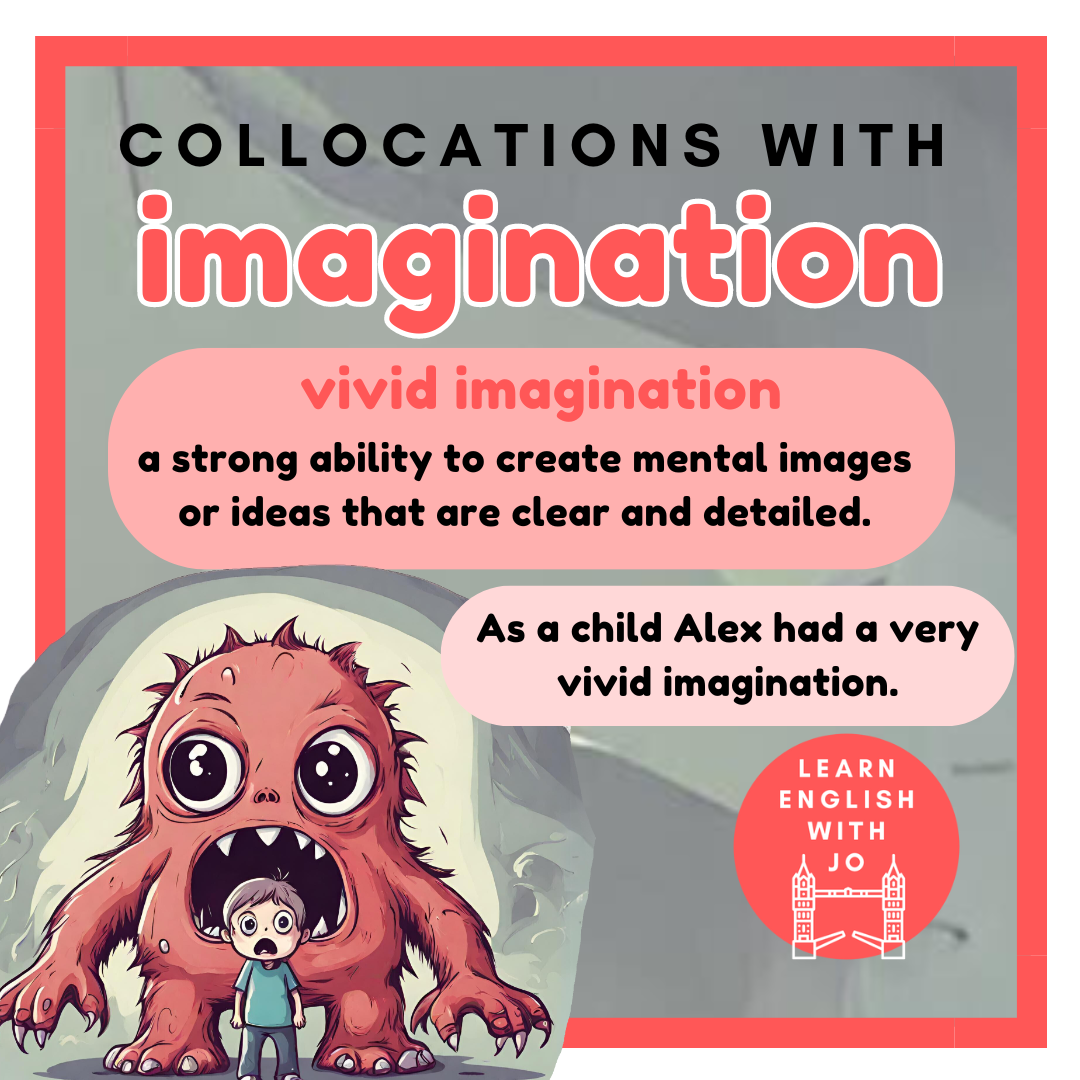
English collocations with imagination.
This week, in her English conversation class, a student wanted to talk about her child’s creativity. The conversation developed into a discussion about imagination and we compared the imagination of a child to that of an adult. During our conversation we explored some of the language we can use to talk about creativity and imagination, including collocations that are commonly used with the word imagination.

Common English collocations with money.
Are you an English learner striving to enrich your vocabulary and speak with confidence about everyday life? Understanding and learning collocations—words that naturally go together— can be important when it comes to mastering English fluency.
So let’s look at some common English collocations with ‘money.’ As you review the chunks, think about how you could use them in your own life and try and create a sentence relevant to you.

English collocations with future
Are you ready to future-proof your English? Today, we're looking at collocations with the word ‘future,’ essential phrases that will make your English sound more natural and fluent.
Why learn collocations?
Studying common collocations is a valuable investment in your English learning journey. It goes beyond memorising individual words and fosters a deeper understanding of how words work together in the language. As you integrate collocations into your conversations, you'll find that your fluency and confidence improves, leading to more effective communication.
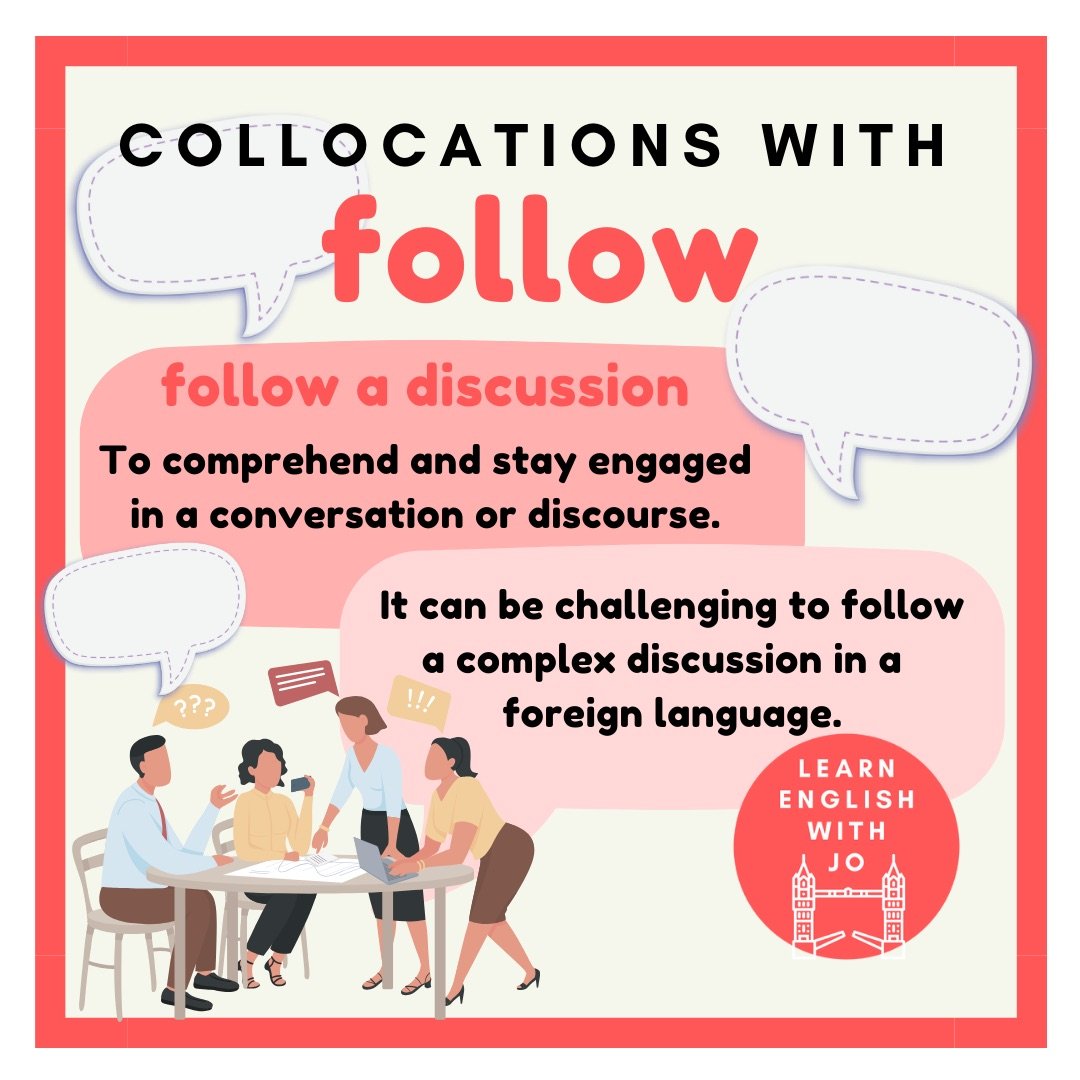
English collocations with follow.
This mini English lesson focuses on essential collocations with the word "follow." Collocations are a common way in which words regularly go together. It's like a partnership between words that often appear side by side or near each other. Learning collocations can help you speak English more fluently. If you're an ESL student looking to improve your English language skills then keep reading!
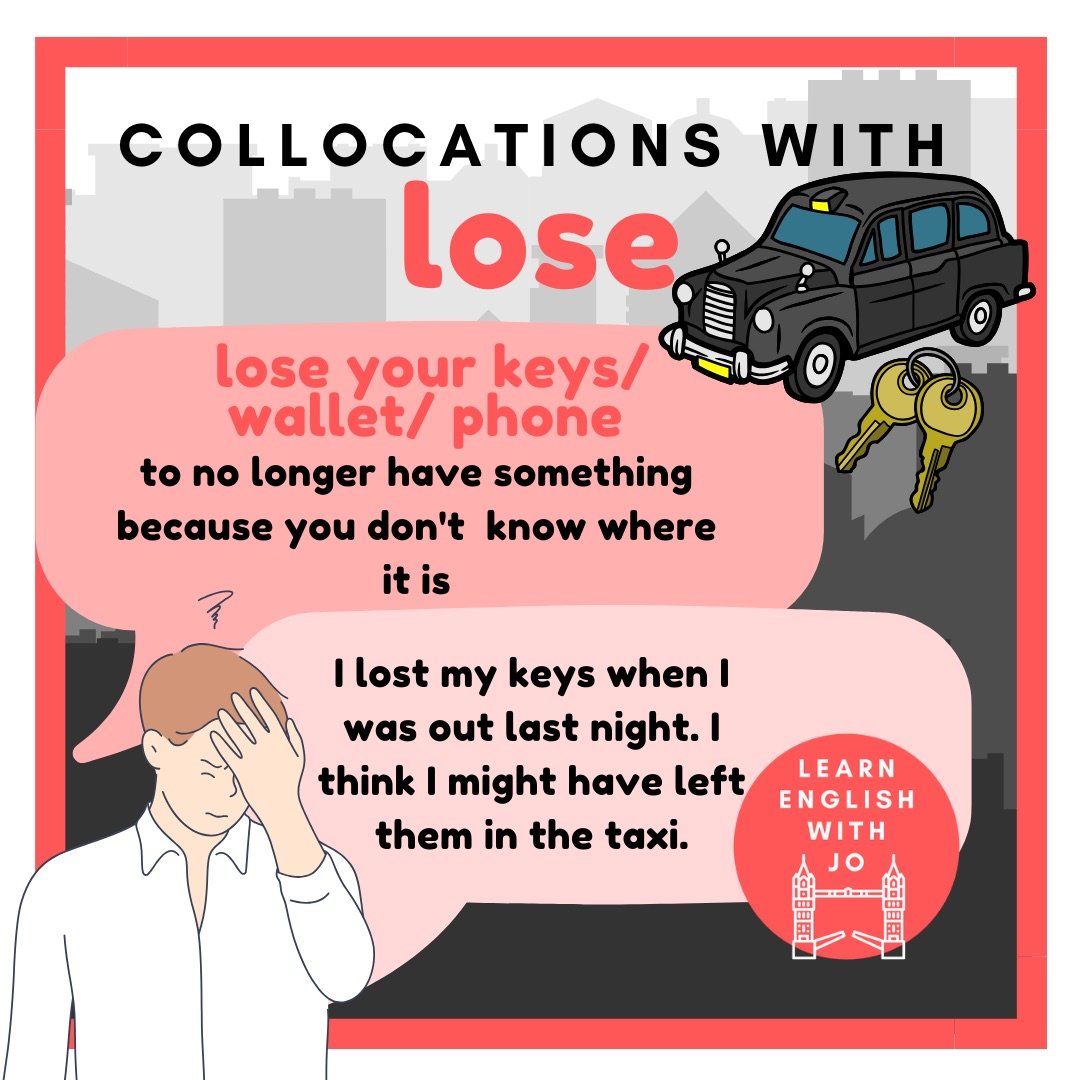
English Collocations with Lose
In English language, certain words often go together and form a fixed expression. These word combinations, known as collocations, have a particular meaning that is often different from the separate words. One such word that forms several interesting collocations is "lose." Let's explore some of these common collocations, their meanings, and examples of their usage

10 Essential English Collocations with Confidence
In my English conversation classes this week we’ve been talking about confidence and we explored some of the collocations that arise when discussing this topic.
Collocations are pairs or groups of words that frequently occur together, and mastering them can make your English sound more natural and fluent.
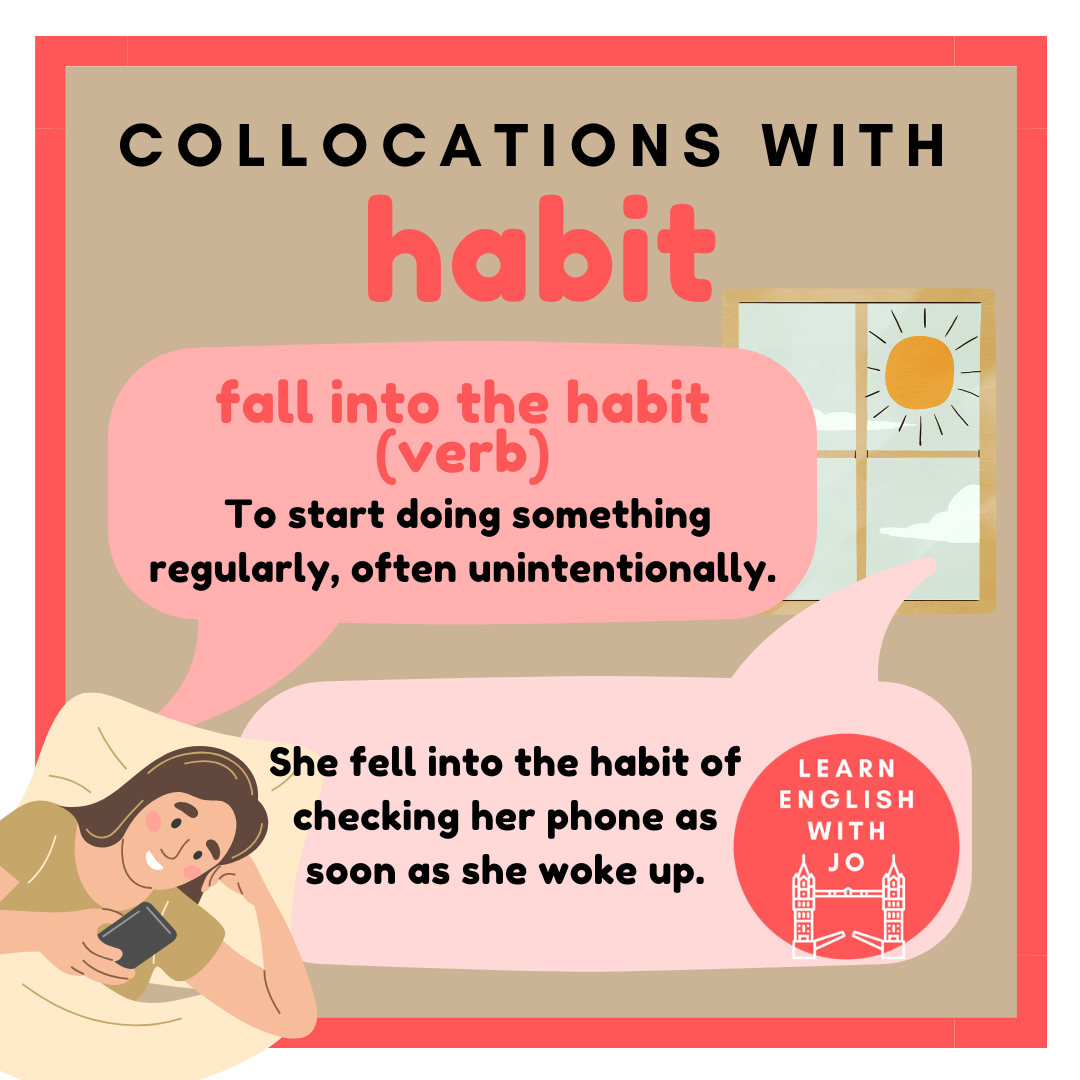
Collocations for talking about habits in English.
This week in my English conversation classes, some of my students have been talking about cultivating good habits and kicking bad habits. In the process we have explored some collocations that are commonly used when talking about habits in English. These are a few of the phrases and expressions we came up with.
